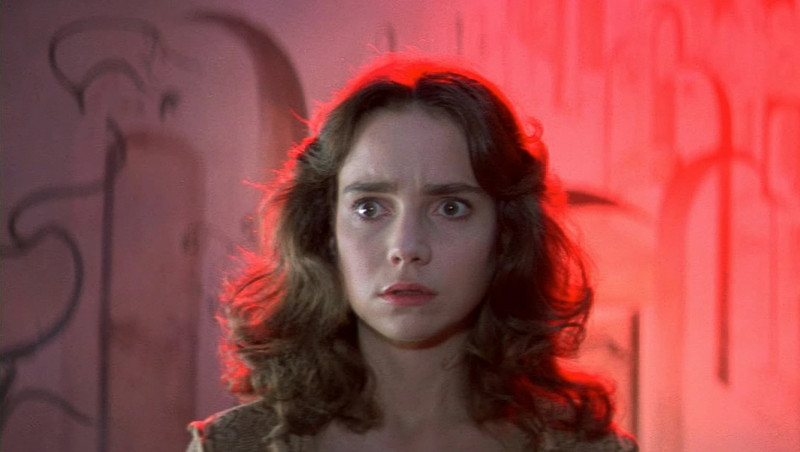
Due to the often exploitative nature of horror films and the upsetting ideas they often provoke, the artistic merits, technical skill, and aesthetic intentions behind them can often be diluted or overlooked entirely.
As with most populist filmmaking there’s always an influx of artless, derivative and profit-motivated work that discredits the real artist and auteurs out there making legitimately meditative and extraordinary work.
Lots of mainstream horror films are franchise wreckages, unoriginal remakes, or compromised failures. But there is also, as any horror fan will tell you, a long and constantly growing lineage and storied history of artistic films, inspiring and original, from true talents creating convincing and challenging works with Hieronymus Bosch-like perceptions that combine top-drawer vision with unerring craft. The list that follows fleshes out the very best films that result from arthouse and horror hybridization.
25. Let the Right One In (2008)
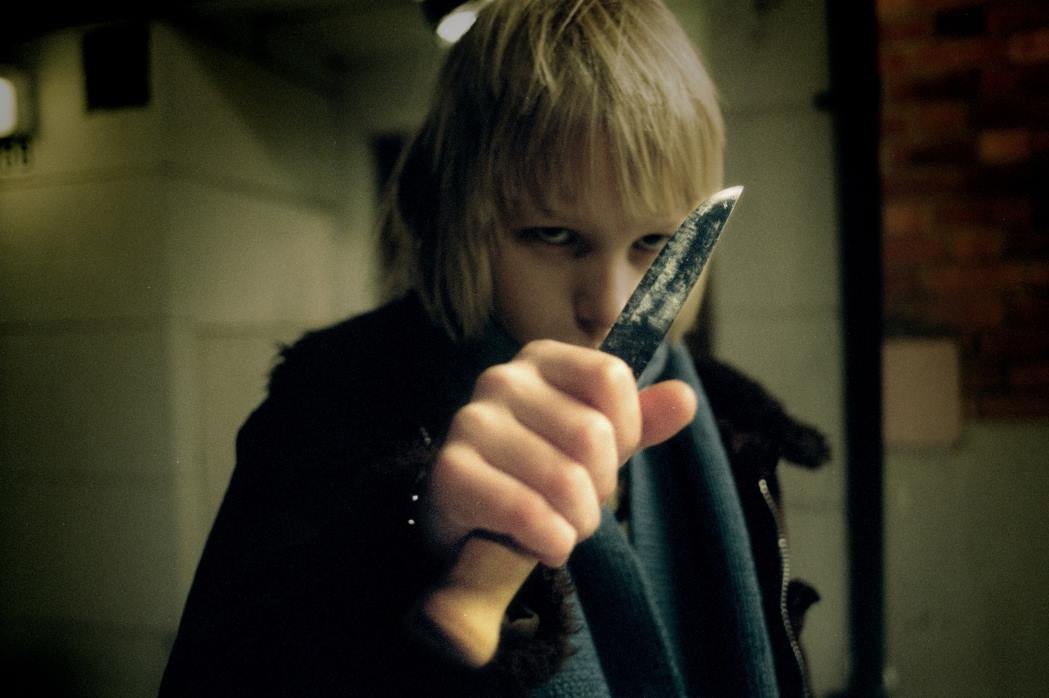
With a startling arthouse sensibility and refreshingly sophisticated emotional depth, Tomas Alfredson’s Swedish vampire film Let the Right One In has become an enduring classic and a highwater mark in the overflooded vampire milieu. Adapted by John Ajvide Lindqvist and based off his 2004 novel, this film is a brilliant merger of romance, horror, coming-of-age comedy, and stirring tragedy.
Oskar (Kåre Hedebrant) and Eli (Lina Leandersson) are both luminous as two lost and lonely kids—one a vampire, one a weirdo, both outcasts—who, for a time, need one another, and need to make sense of the world. Austerely elegant visuals, inventive and endearing re-imaginings of familiar vampire tropes, and pensive yet persuasive symbolism and spectacle, this is modern horror done to perfection. Let the Right One In is felt in the gut and strangely stirs the heart.
24. Hour of the Wolf (1968)
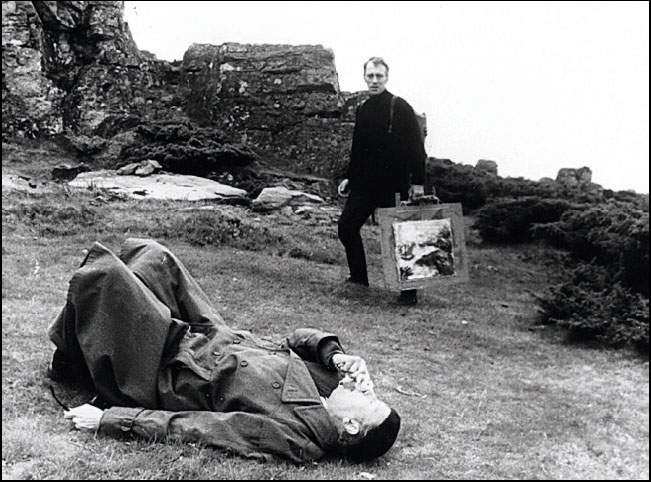
This surrealist psychological nightmare was inspired by the writings of fantasy and horror author E.T.A. Hoffman––the inspiration for Powell and Pressburger’s 1951 film The Tales of Hoffman––and also has the distinction of being the only horror film in Ingmar Bergman’s legendary oeuvre.
Hour of the Wolf is set on a remote island of Baltrum where troubled painter Johan Borg (Max von Sydow) is slowly losing his mind. The bizarre cult that lives on Baltrum are a suspicious and strange lot and Johan and his pregnant wife Alma (Liv Ullmann) begin to suspect that the disturbing visions and paranoiac delusions they’re suffering from may be a direct result of this cult and its eccentric leader, Baron von Merkens (Erland Josephson).
A visually dense gothic fantasy––cinematographer Sven Nykvist’s expressionistic lensing lifts the tale immensely, too––highlighted with haunting imagery and Bergman’s signature supply of existential dread, this is a fascinating, disorienting, and stylized work from a master craftsman.
23. A Field in England (2013)
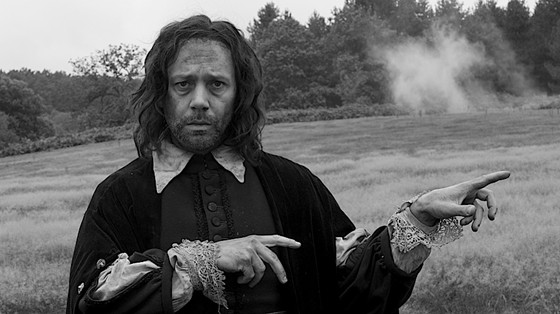
Ben Wheatley’s incomparable A Field in England is the ultimate midnight movie as it gleefully blurs the line between dream and reality. Set in mid-17th century England this film is a black comedy disguised as an arthouse horror film that unravels like a morally ambiguous Möbius strip as it follows Whitehead (Reece Shearsmith) fleeing from a demonic alchemist named O’Neill (Michael Smiley) amidst a bloody English Civil War battle. Cursed and accompanied by a trio of deserters this ill-starred crew, high on psilocybin mushrooms, are soon at the mercy of O’Neill.
Cinematographer Laurie Rose lenses a monochrome world of creepy close-ups and other odd and ominous tricks as the trippy pastoral mise en scène mutates into a Grand Guignol chamber of horrors. Pitch-dark humor, abstract allure, quick-witted dialogue and grisly, visceral and enjoyably indulgent thrills proliferate with alacrity and alarm leading to a frightful finish. To miss out on A Field in England would be a regrettable faux pas.
22. Only Lovers Left Alive (2013)
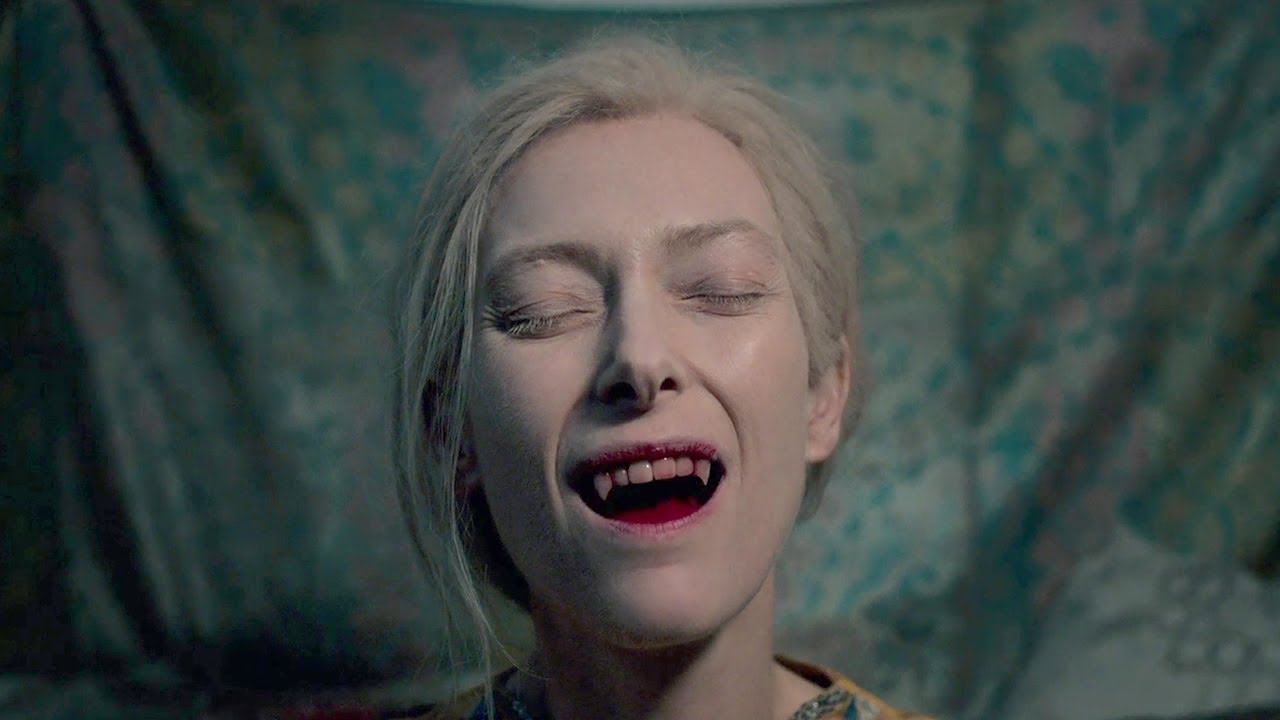
Eve (Tilda Swinton) is one part of an incurably cool vampire couple whose husband, Adam (Tom Hiddleston) is having self-harming thoughts in Jim Jarmusch’s chic shocker, Only Lovers Left Alive.
Tough-as-nails and fiercely romantic, this vampire film is full of leitmotifs involving fear, exhilaration, alienation, isolation, creativity, art, music, literature, life, and death. It’s not full-on in your face horror but it does have classic Gothic sensibilities, jets of blood, moments of mortal fear, piercingly sad genuflections, and painfully poignant ruminations on unending love.
More visual than it is verbal, this elegiac and eerie film displays, amongst other things, the wraithlike dissolution of Detroit, the unearthly otherness of Tangier and many amusing and macabre tableaus of the undead, their uncanny mores and their outlandish dwellings. Only Lovers Left Alive is a visual spree detailing the haunting harmony of ageless sweethearts in perpetual midnight. Marvellous.
21. Carnival of Souls (1962)
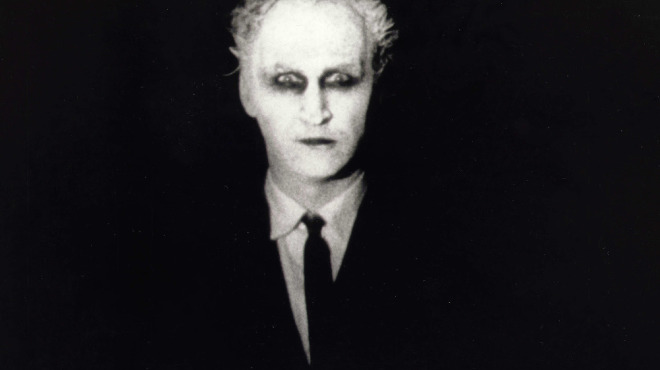
Plagued by nightmarish and malformed visions, Mary Henry (Candace Hilligoss), the sole survivor of a deadly car crash under mysterious circumstances, is slowly drawn to the deserted and sinister carnival on the outskirts of town in Herk Harvey’s influential spine-chiller, Carnival of Souls.
This is the film that American auteurs like David Lynch and George Romero regularly cite as having a huge influence over their distinctive bodies of work. Harvey, working with a low budget, filled Carnival of Souls with cool monochromatic images that underscore the existential dread of Mary, making a ghost story of striking originality, upsetting atmosphere, stylized and forcible performances––Hilligoss is great in the lead role and Harvey’s epochal portrayal of “The Man” is pure nightmare fuel––and Gene Moore’s creepy score make this an early arthouse horror milestone.
20. The Innocents (1961)
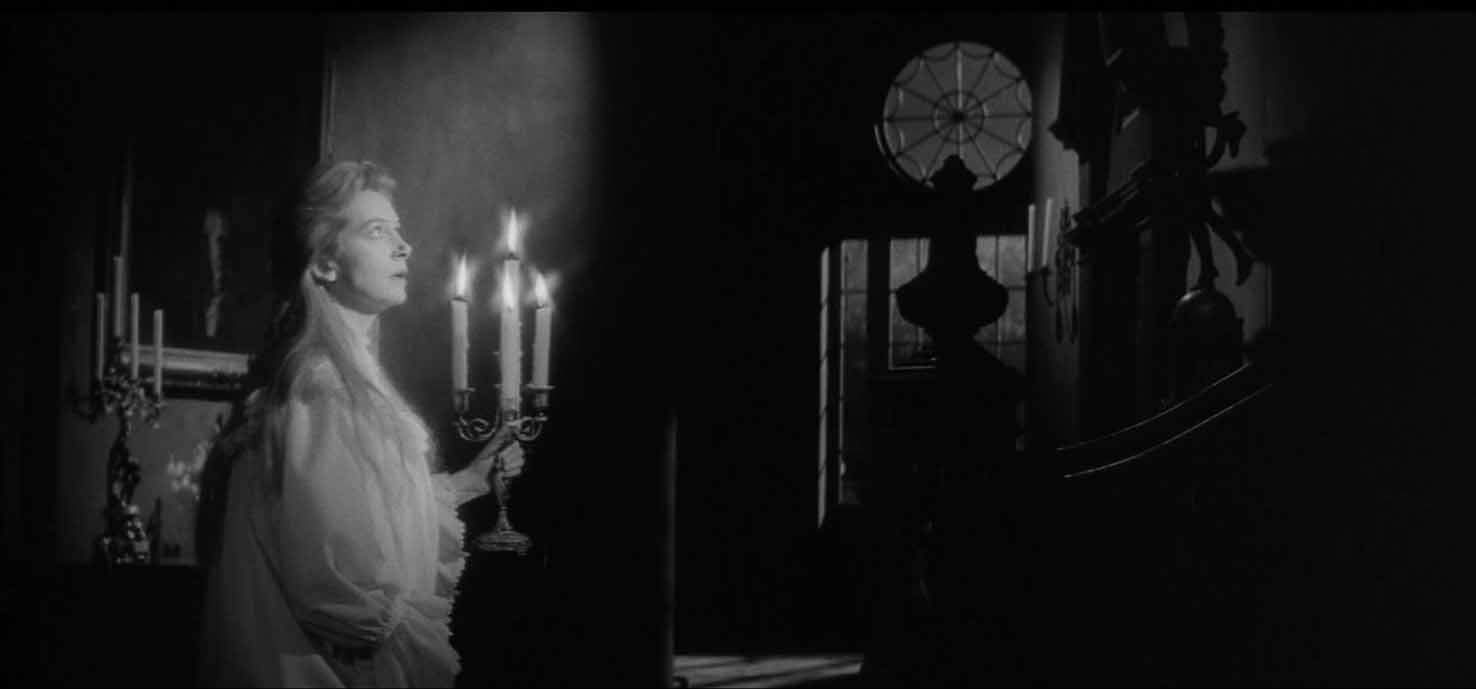
Jack Clayton’s classic gothic horror thriller The Innocents takes several cues from Henry James’ “Turn of the Screw” as it details the sad story of Miss Giddens (Deborah Kerr) who takes a governess job for two orphans in a creepy AF Victorian home. The children display the requisite bizarre behaviour and Miss Giddens believes she’s seeing ghosts and other supernatural nightmares.
Legendary cinematographer Freddie Francis brilliantly deploys deep focus lensing, and artful, atmospheric lighting which heightens the emotional turmoil of the characters. Clayton couples Francis’ expert details with Georges Auric’s chilling score, and subtle, slow burn pins and needles aplomb.
Still spooky after all these years, The Innocents is a monument to mysterious psychological scares and sophisticated Freudian-obsessed cinema. Ghost stories are rarely this effectively rendered and beautifully framed. A classic.
19. House (1977)
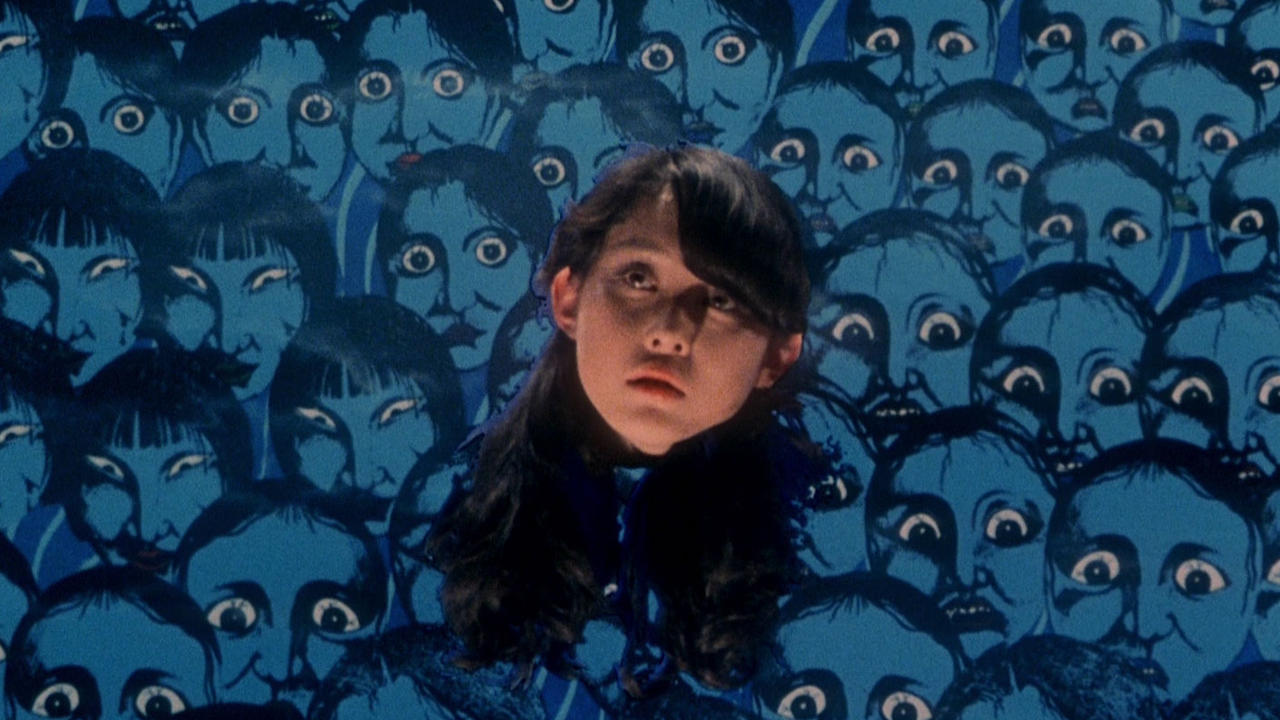
Like the bastard love child of Dario Argento and Scooby-Doo under the influence of LSD, director/producer Nobuhiko Obayashi’s House is a goulash of ghoulish goodies. A very strange and often baffling haunted house tale, this films is a fever dream of cluttered symbolism, off-kilter cartoonish comedy, odd nuclear war allusions, persisting strangeness, kitschy reappropriations, and floods of blood.
Visuals are teeming and let’s just say eccentric––a maniacal white cat, a people-eating piano, a bonkers grandmother––and curious characters with names like Gorgeous (Kimiko Ikegami), Fantasy (Kumiko Oba), Kung Fu (Miki Jinbo), and Sweet (Masayo Miyako) come and go like confetti.
Lots of expressionistic imaginings and stylish set pieces occasionally call to mind the likes of Powell and Pressburger or just get outright silly and enjoyably sadistic. One thing is for certain: you’ve never seen a film quite like House.
18. Vampyros Lesbos (1971)
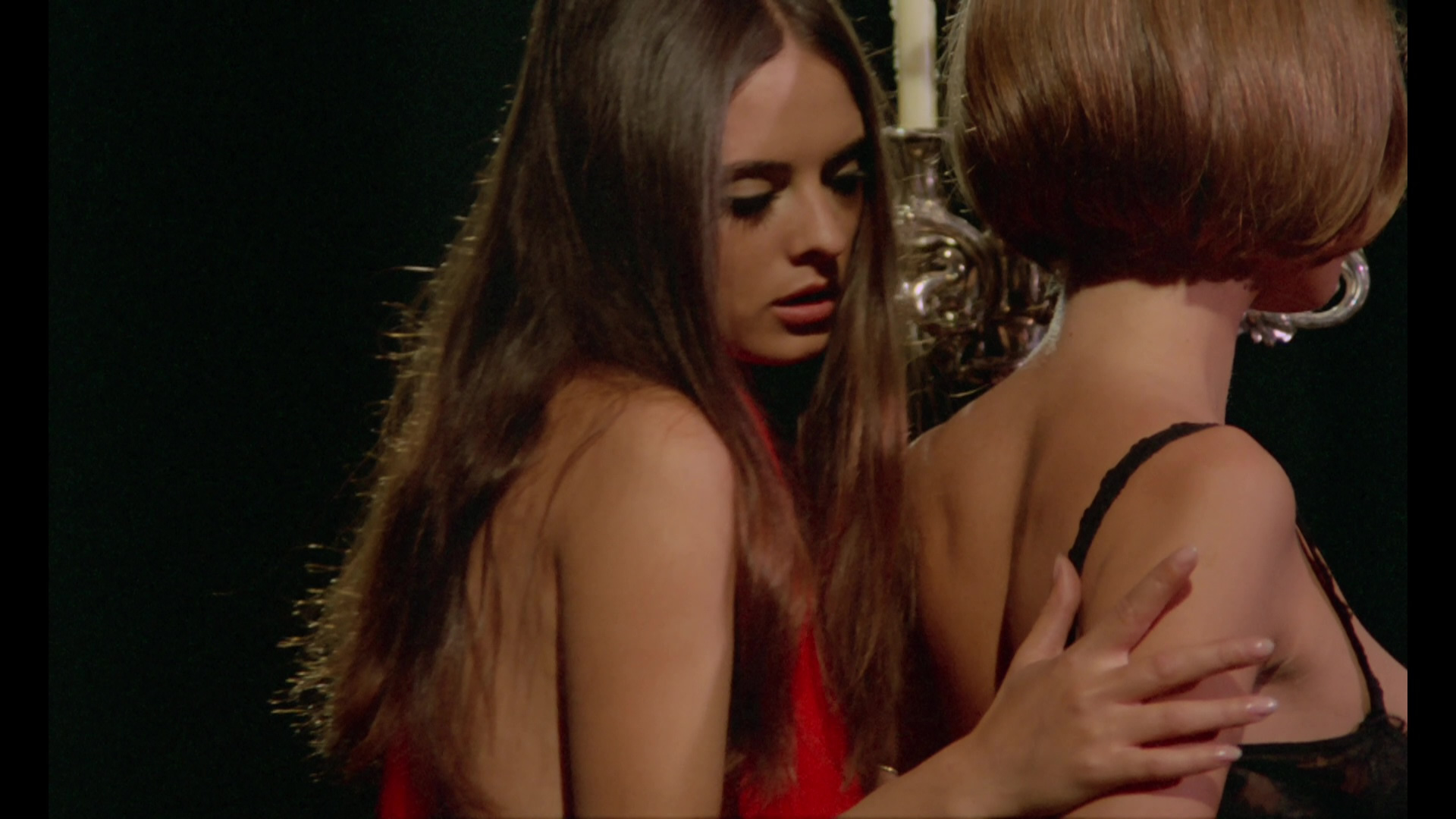
Jess Franco’s masterstroke, Vampyros Lesbos tells the libidinous tale of Countess Carody (Soledad Miranda) and her pretty young quarry, Linda Westinghouse (Ewa Strömberg).
Re-working the well-established Dracula mythos with some refreshing gender reversals, running in vintage sexploitation mode that’s ably assisted by Manfred Hübler and Sigfried Schwab’s thrumming psychedelic score (Franco makes some musical contributions as well), and Manuel Merino’s giallo-inspired lensing makes for a transgressive tour de force.
The sexual pathology combines explicitly and slyly with surreal imagery and uncommonly provocative and mesmeric deflections––the extensive love scenes are Franco’s finest and most bewitching in a long career of such deviations. This is a dreamlike procession that shouldn’t be missed.